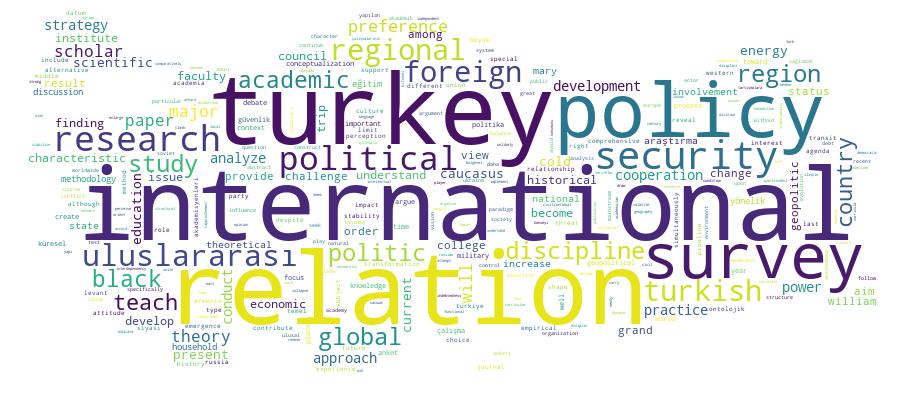Aydın, Mustafa
Loading...

Profile URL
Name Variants
Aydın, M.
Aydın,M.
Aydin,Mustafa
Mustafa AYDIN
MUSTAFA AYDIN
AYDIN, Mustafa
AYDIN, MUSTAFA
Mustafa Aydın
Aydin M.
Aydın M.
M. Aydın
Mustafa, Aydin
A.,Mustafa
Aydın, Mustafa
Aydın, MUSTAFA
Aydin,M.
Aydin, Mustafa
A., Mustafa
Aydın,M.
Aydin,Mustafa
Mustafa AYDIN
MUSTAFA AYDIN
AYDIN, Mustafa
AYDIN, MUSTAFA
Mustafa Aydın
Aydin M.
Aydın M.
M. Aydın
Mustafa, Aydin
A.,Mustafa
Aydın, Mustafa
Aydın, MUSTAFA
Aydin,M.
Aydin, Mustafa
A., Mustafa
Job Title
Prof. Dr.
Email Address
Main Affiliation
International Relations
Status
Current Staff
Website
ORCID ID
Scopus Author ID
Turkish CoHE Profile ID
Google Scholar ID
WoS Researcher ID
Sustainable Development Goals
15
LIFE ON LAND

0
Research Products
16
PEACE, JUSTICE AND STRONG INSTITUTIONS

1
Research Products
14
LIFE BELOW WATER

4
Research Products
6
CLEAN WATER AND SANITATION

0
Research Products
3
GOOD HEALTH AND WELL-BEING

1
Research Products
17
PARTNERSHIPS FOR THE GOALS

13
Research Products
4
QUALITY EDUCATION

0
Research Products
2
ZERO HUNGER

0
Research Products
10
REDUCED INEQUALITIES

3
Research Products
7
AFFORDABLE AND CLEAN ENERGY

0
Research Products
13
CLIMATE ACTION

0
Research Products
1
NO POVERTY

0
Research Products
9
INDUSTRY, INNOVATION AND INFRASTRUCTURE

0
Research Products
12
RESPONSIBLE CONSUMPTION AND PRODUCTION

0
Research Products
8
DECENT WORK AND ECONOMIC GROWTH

2
Research Products
11
SUSTAINABLE CITIES AND COMMUNITIES

0
Research Products
5
GENDER EQUALITY

0
Research Products

Documents
45
Citations
364
h-index
10

Documents
34
Citations
205

Scholarly Output
50
Articles
34
Views / Downloads
359/4039
Supervised MSc Theses
0
Supervised PhD Theses
1
WoS Citation Count
79
Scopus Citation Count
118
WoS h-index
5
Scopus h-index
8
Patents
0
Projects
0
WoS Citations per Publication
1.58
Scopus Citations per Publication
2.36
Open Access Source
26
Supervised Theses
1
| Journal | Count |
|---|---|
| Uluslararasi Iliskiler | 6 |
| Southeast European and Black Sea Studies | 3 |
| Journal of Balkan and Near Eastern Studies | 3 |
| Uluslararası İlişkiler | 3 |
| Uluslararası İlişkiler Dergisi | 3 |
Current Page: 1 / 4
Competency Cloud


